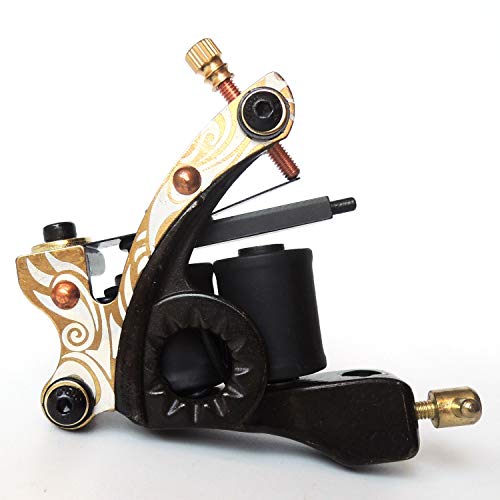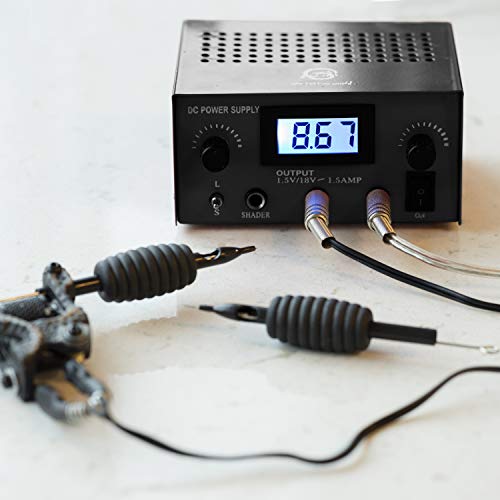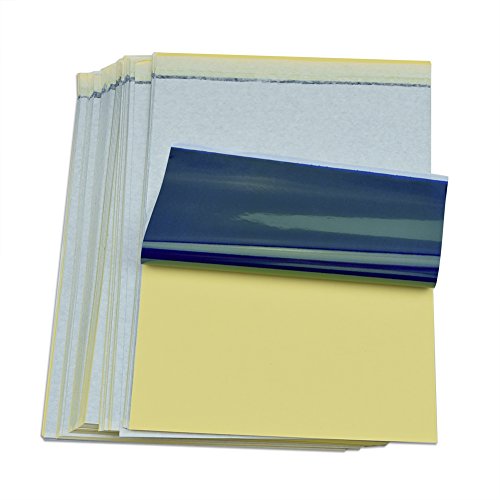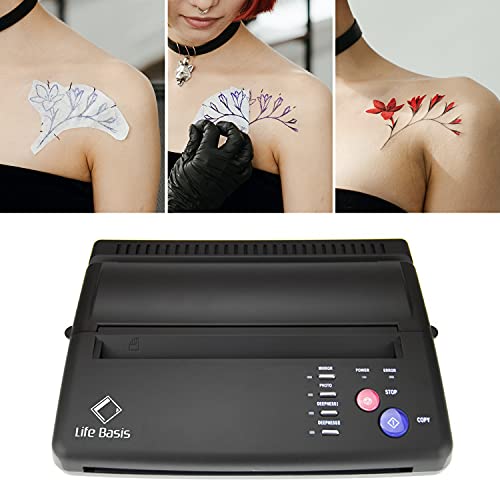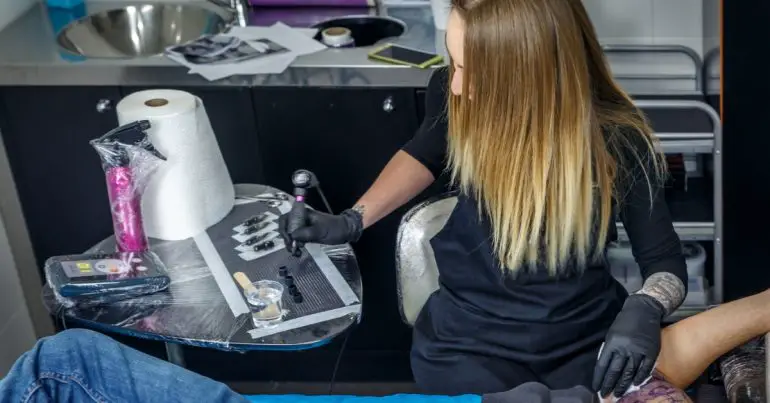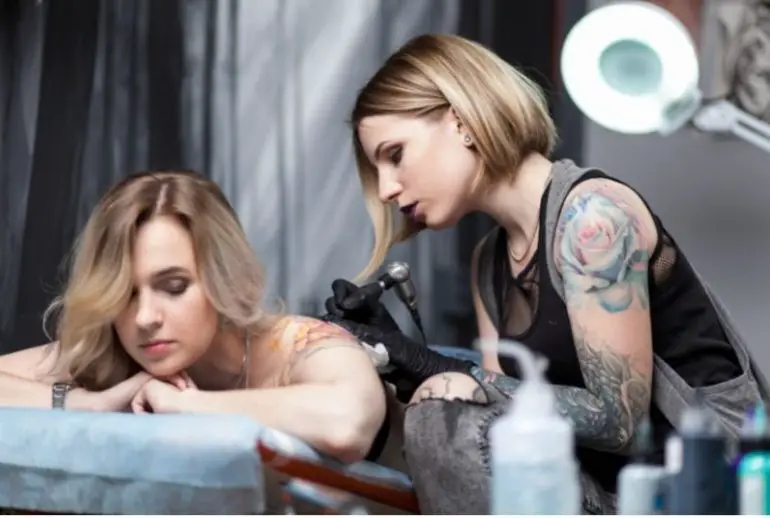Beginner Tattoo Supply List: A Simple Guide for Starters
Although this article is aimed at individuals who aspire to become professional tattoo artists, the information included here is equally useful for those who love doing DIY tattoo projects at home.
Starting a business requires analytical thinking, funding, and a thorough plan.
For a tattoo studio especially, buying beginner tattoo supplies is one of the essential steps.
Because many of the supplies used in this procedure are meant to be thrown away after a short time, you will need to replenish your supply.
But what are those supplies for tattooing?
If you’re new to the tattoo industry, it’s okay to be clueless about what to buy.
We’ll round up all the necessary items to add to your shopping list.
What Supplies Do You Need for Tattooing?
A. Tattoo Machines
Tattoo machines are an indispensable part of tattooing, so you should take time to pick ones that suit your style and needs.
Though there are many choices, they are generally divided into rotary and coil machines, which have different working mechanisms and versatility.
Rotary machines benefit from their ultra-lightweight designs and low noise levels. They’re also capable of handling multiple tattoo techniques.
Coil machines, on the other hand, offer a more solid hand grip. Unfortunately, they can perform one task at a time.
You need to own a combination of a liner, a shader, and a color picker.
Each has unique traits that make it useful for a specific application.
Please delve deeper into the differences before you buy one or several units to equip your workstation.
B. Tattoo Parts
1. Clip Cords
The whole tattoo machine system is actually more complex than you imagined.
Though the machine often commands the biggest attention, it won’t work without all the complementary elements that make up the system.
And one of those things is a clip cord, which delivers power to the handheld device by connecting it to an outlet.
Remember that a tattoo machine needs electricity to run, making it an inevitable addition to your tattoo kit.
2. Footswitches
These are switches where you put your foot on to control the on and off function.
You’re not supposed to create an outline or do the shading work nonstop over a long duration. There has to be a break in between.
So that the machine doesn’t consume power at idle, it needs to be switched off temporarily, and a footswitch can help you with that.
It sports a unique design to prevent accidental pressing.
Apart from quality, a switch needs to be non-skid and offer wide compatibility with various power supply units.
3. Power Supplies
A power supply is another critical component of a working tattoo gun.
If you’re wondering about the function, the name speaks for itself. It’s the device that plays a role in delivering electricity to your machine.
It can be confusing to settle on one with all the terrific choices out there. But make sure to these things into account; voltage, type, and fluctuations.
Acquiring the right unit will help you capitalize on the machine’s full potential.
C. Medical and Sterilization Supplies
1. Tattoo Machine Cover Bags
Disposable bags allow you to carry out tattoo work in a sterile manner.
Decontamination returns your rotary pen or coil machine to its original state. Still, cover bags can help keep contaminants like ink and blood out.
It goes beyond implementing safety protocols because allergic reactions can arise from physical contact with ink.
Those with hypersensitivity to ingredients in tattoo ink need these items to work peacefully without worrying about potential exposure.
2. Antiseptics
Inhibiting bacterial growth is a pivotal step in the aftercare of a tattoo.
The punctured skin is basically an open wound. Without proper attention, bacteria can increase in the area and cause an infection.
The worst part is that it may disrupt the healing process and affect its appearance when fully healed.
For this reason, an antiseptic spray or salve needs to be on your equipment list.
3. Tattoo Aftercare Kit
A tattoo aftercare kit contains more than just an antiseptic.
It also includes other items that help maintain the vibrancy of a tattoo and lock moisture in the skin.
If you need an all-in-one solution to take care of clients’ tattoos, get this instead of buying all aftercare goods separately.
Learn more about Tattoo Aftercare
4. Disinfectants
Blood can be a transmission pathway for many diseases, which is why keeping equipment sterile should be a major concern.
Tattoo studios use a variety of sterilization methods, including disinfectants. These are chemicals that are used to kill microbes that are potentially harmful to humans.
A wide range of bacteria, fungi, and viruses are combated by these agents. It’s also important to buy a product formulated with non-toxic ingredients.
5. Sterilization Bags
It’s not just sterilization that matters. Keeping the tools sterile post decontamination is equally important.
Letting them sit in the open air poses the risk of repeated exposure to contaminants.
But don’t worry, these bags can come to your rescue if you want to protect tools after autoclaving or set them apart from the dirty ones.
6. Alcohol or Alcohol Swabs
Alcohol can be applied to the skin before the tattoo session begins.
It is effective for destroying up to 91% of bacteria inhabiting the skin.
To make it practical, alcohol swabs can be a substitute. These gauze pads are already soaked in alcohol, so they’re ready to use right after you rip the package open.
7. Medical Waste Container
An ideal waste container is one that not only holds a good amount of medical waste but also has a top lid to lock contaminated tools inside.
Good sealing also helps slow down bacterial growth.
8. Tattoo Autoclave
An autoclave is a machine that combines high pressure and steam to sterilize instruments by killing pathogenic microorganisms present on them.
This method works effectively, making it a worthy purchase for a professional tattoo shop.
9. Nitrile Gloves
These protective gloves offer a handful of benefits.
Not only do they protect you from bloodborne pathogens, but they also keep your hands clean throughout the tattoo session.
There’s no risk of ink stains as long as you have these gloves on.
10. Tube Cleaning Brushes
Cleaning spaces that are difficult to reach need a specially-built brush, like one with a flexible handle.
It allows you to adjust the angle for easy cleaning of tattoo equipment.
In case it’s not bendable, consider buying a kit with multiple brushes of varying sizes.
11. Tattoo Machine Holder
You can use this stand to place your machine as you’re preparing for the tattoo session.
It can also be a temporary holder when you need to take a break. Make sure to choose a product with a universal design or suitable for the machine you use.
12. Ultrasonic Cleaner
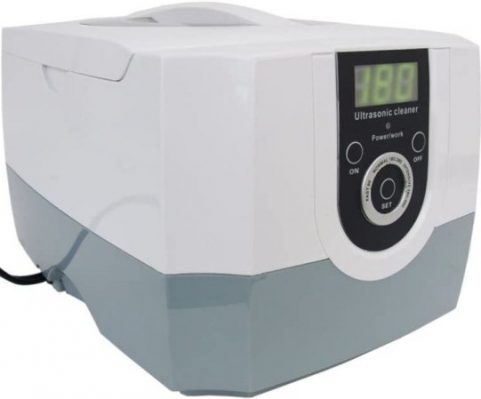
Want to remove stubborn stains from your tattoo equipment?
An ultrasonic cleaner is an answer. It’s a machine that utilizes high-frequency waves to generate bubbles, which then later detach contaminants from objects to bring back their shine.
It can get rid of traces of dirt, oil, and even microbes. You can use it with a special solution to amplify the effect.
13. Needle Trays
A needle tray is a shallow container for organizing needles.
With this, you won’t see incidents where needles roll around on the workstation. There is an orifice for each needle to secure it in place.
14. Disposable Razors
Anything applied to the clients’ skin can not be shared to keep the risk of cross-contamination low.
And that includes razors. For guaranteed safety, consider buying disposable razors you can easily throw away after use.
15. Bandages
Proper care needs to be administered right after a tattoo has been created.
A bandage can protect a tattoo from small particles that may interfere with its healing.
The good permeability also promotes air circulation, which aids in the recovery and helps the tattoo retain its vibrancy for longer.
16. Medical Grade Scissors
Medical grade scissors are necessary to cut gauze pads, tapes, and bandages to the desired sizes.
They aren’t only capable of cutting through smooth fabrics but also tough materials. That’s why many products are made of high-grade stainless steel or titanium.
17. Tongue Depressors
Normally a tongue depressor is used to press down the tongue during a mouth examination.
But thanks to the versatile design, it can also be used to evenly rub ointment on the skin.
This ensures a safer practice, especially when the risk of infection is at its absolute highest.
18. Needle Supplies
The needle is the tool inserted into a tattoo gun to puncture the skin.
Therefore, you can’t take hygiene for granted. The good news is tattoo needles often come in individual packages and are tightly sealed.
Not only that but they’ve also been sterilized during the manufacturing process.
D. Art and Stencil Supplies
1. Tattoo Transfer Paper
This special type of paper prints tattoo designs before they’re traced on the skin for more accurate results.
It’s compatible for use with dot-matrix printers and thermal copiers.
Though you can draw a design directly on this paper, using a machine saves a lot of time.
2. Thermal Copier
This is another significant addition to a tattoo studio. As said before, using a machine to produce designs can cut down on your time.
Thus, you can focus more on the tattoo work. Besides functionality, opt for a model that provides ease of use and convenience.
Learn more about Tattoo thermal copier
Beginner Tattoo Supplies Conclusion
Now you already have the drive to run your own tattoo studio, but is that enough?
No, it’s not. There’s a lot that goes into getting the business off the ground.
Promotion and planning are crucial, but you should also stock up the room with beginner tattoo supplies.
The challenging part is that each category has many products, which will suck out your energy to purchase everything.
But once you know what to buy, restocking the inventory will be much easier next time.

